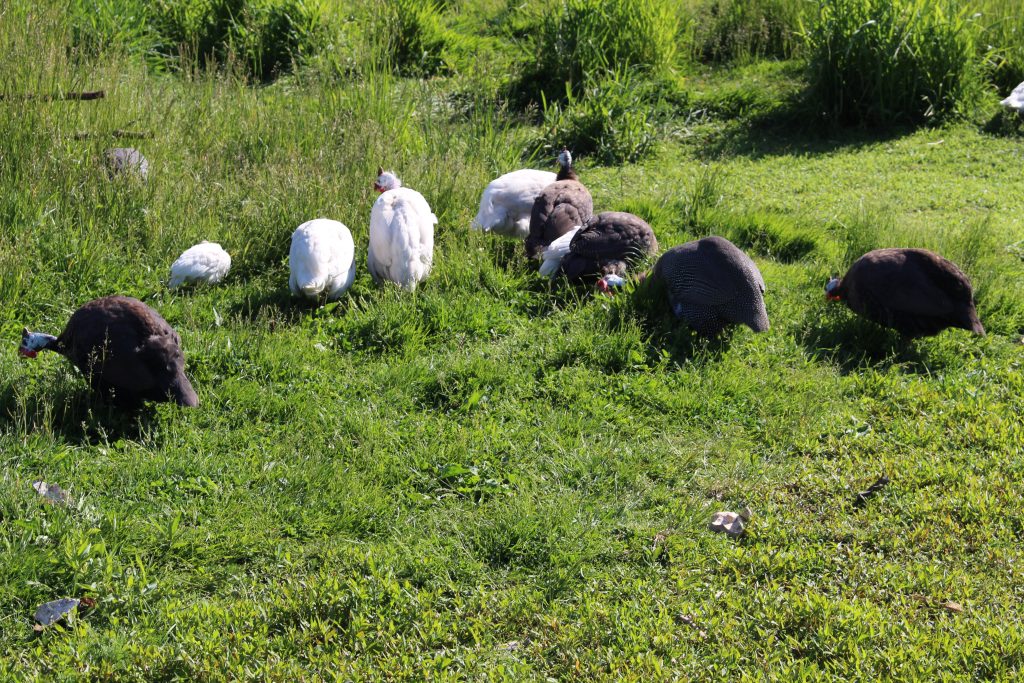Guinea Fowl vs Chickens
While guinea fowl share some similarities with chickens, there are several notable differences between the two. Firstly, guineas are monogamous. Each guinea fowl has at most one mate. Typically, a male guinea fowl will remain with his mate for at least a few months or even years before seeking a new partner. Unlike chickens, guinea fowl are adept at flying and prefer to roost at significantly higher elevations. Furthermore, their eyesight, being significantly better than chickens’, enables them easily to spot and destroy tiny pests like ticks. It is important to note that while guinea hens will likely accept chicks (chicken youngsters), they aren’t so likely to tolerate adult chickens. Thus, they should be kept in separate coops. Lastly, guinea fowl are cleaner than chickens, as they keep their feathers cleaner and produce less feces.
Foraging and Laying Habits
While guinea fowl often gather for feeding, drinking, and dust bathing, they occasionally venture out in pairs to forage and lay eggs where they see fit. Guinea hens typically eschew nesting boxes in favor of nesting spots that suit their preferences. The ideal outdoor nesting spot for a guinea hen usually features soft ground, shade, and ample plant cover. As she lays her egg, her mate will usually keep a watchful eye nearby while foraging.

Brooding Habits
When a guinea hen decides that it’s time for her to reproduce, she will seek out a comfortable nesting spot to call home for the next several weeks. Every day, she will spend almost the entirety of her time incubating her eggs and those of other guinea hens. During this period, guinea hens fiercely defend their eggs by hissing as a warning, pecking, and scratching intruders. If you ever try to collect guinea eggs like you would a chicken’s, make sure you have sufficient eye, arm, and face protection. Occasionally, the guinea hen will briefly leave her nest for food and water. Moreover, if she spots a predator (or a human) attempting to take any of her keets, she will vigorously repel it.

Predator Response
When guinea fowl detect an existential threat, such as a coyote or a fox approaching their location, their robust survival instincts kick in. The first thing the flock does is fly to a high refuge, typically a tall tree, as quickly as possible. Once there, they patiently wait for the predator to leave. Eventually, the guineas glide back down to the ground. If they observe a threat in the air (e.g. a hawk), they will run to the nearest shelter instead of using an elevated refuge.
Leave a Reply